






Azure Acres (Closed)
Verified Center
This provider's information has been quality-checked by Recovery.com's Research Team for accuracy and completeness, including center verification through appropriate third-party organizations.
Treatment Focus
This center treats substance use disorders and co-occurring mental health conditions. Your treatment plan addresses each condition at once with personalized, compassionate care for comprehensive healing.
Primary Level of Care
Offering intensive care with 24/7 monitoring, residential treatment is typically 30 days and can cover multiple levels of care. Length can range from 14 to 90 days typically.
Treatment Focus
This center treats substance use disorders and co-occurring mental health conditions. Your treatment plan addresses each condition at once with personalized, compassionate care for comprehensive healing.
Primary Level of Care
Offering intensive care with 24/7 monitoring, residential treatment is typically 30 days and can cover multiple levels of care. Length can range from 14 to 90 days typically.
Provider's Policy
Please call our admissions team for more information on insurance coverage. A knowledgeable member of our team can answer any financial questions you might have, and they can also reach out directly to your insurance carrier to verify and maximize your benefits. This service is free and puts you under no obligation to choose our programming.
Azure Acres (Closed)
Azure Acres (Closed)
About Azure Acres (Closed)
*CLOSED* Azure Acres treats addiction and co-occurring mental health conditions with multiple levels of care. These include residential treatment, day treatment, an intensive outpatient program (IOP), and a lifetime of aftercare. Their center rests on 30 acres. Azure Acres uses evidence-based and personalized treatment to help each client heal holistically.
Inclusive And Comprehensive
Azure Acres treats addiction in men, women, veterans, and LGBTQ+ clients. Azure Acres provides detox for those who need it. Clients begin therapy as soon as they feel up to it, with weekly group therapies, gender-specific therapy, family therapy, and an individual session with their therapist each week. Their weekly experiential therapies include qigong, role-playing, and expressive arts.
Whole-Person Treatment
Azure Acres offers multiple evidence-based therapies, including cognitive behavioral therapy (CBT), dialectical behavioral therapy (DBT), 12-Step meetings and education, and somatic therapy. They also offer bibliotherapy (reading or storytelling), yoga, and outdoor activities on their property.To help clients settle in, Azure Acres pairs each client with a buddy as soon as they begin treatment.
Multiple Levels of Client-Centered Care
Azure Acres offers multiple levels of care. Their day treatment program runs for 6 days each week, for 15-30 days. In day treatment, clients can live at home or in Azure Acres’ sober living home. Their IOP program runs for 4 days a week, for 3 hours each day. They have 2 IOP locations: Sebastopol and Sacramento. IOP lasts 6 weeks. Azure Acres also provides sober living. After treatment, clients have a lifetime of aftercare access, which includes weekly alumni meetings, monthly dinners, and annual events.

Highlights from the Center
Highlights
These highlights are provided by and paid for by the center.
Nature Lovers
Pool
Private Rooms Available
12-Step Approach
Center Overview
Treatment Focus
This center treats substance use disorders and co-occurring mental health conditions. Your treatment plan addresses each condition at once with personalized, compassionate care for comprehensive healing.
CARF Accredited
CARF stands for the Commission on Accreditation of Rehabilitation Facilities. It's an independent, non-profit organization that provides accreditation services for a variety of healthcare services. To be accredited means that the program meets their standards for quality, effectiveness, and person-centered care.

Insurance Accepted
Cash Pay Rates
Estimated Cash Pay Rate
Center pricing can vary based on program and length of stay. Contact the center for more information. Recovery.com strives for price transparency so you can make an informed decision.
Meet Your Care Team

Daniel J. Ceglowski
Medical Director
MD, MBA, FACEP

Vina Literato
Nursing Manager
RN

Alessia Bhargava
Consulting Psychiatrist
MD

Tracy Dempsey
Nurse Practitioner
Master's Degree

Bradly Snell
Program Director
CADC III

Kristin Kolbinski
Clinical Director
Psy.D., EMDR-Trained

Marisa Shanahan
Assistant Clinical Director
AMFT, EMDR-Trained
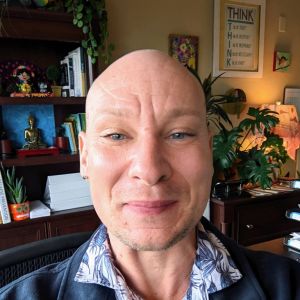
Jym Schmidt
IOP Counselor
SUDCC, RPS

Candice Lipson
Interim Chief Executive Officer
RN, MSN, CNL

Lynette Grelet
Director of Operations

Shelby Wells
Director of Risk Management
BS, RADT

Audrey Mello
Director of Utilization Management

Sheena Perry
Psychiatric Nurse Practitioner
MSN, PMHNP-BC, APRN, CNE
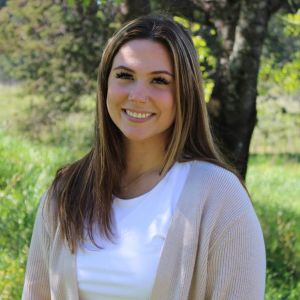
Cassidy Spatz
Case Management Specialist
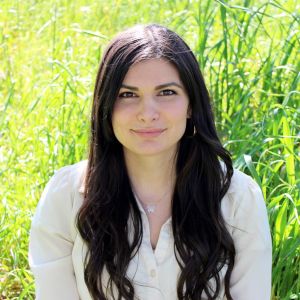
Tanine Falatoonzadeh
Therapist
AMFT, EMDR- Trained
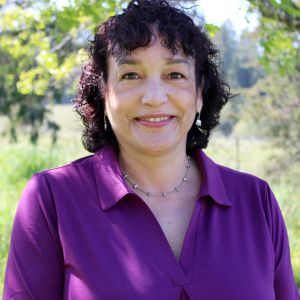
Kellie Beals
Therapist
Psy.D, EMDR-Trained

Kacey Koeberer
Therapist
AMFT
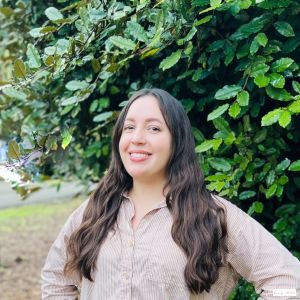
Anjelica Martinez
Therapist
AMFT
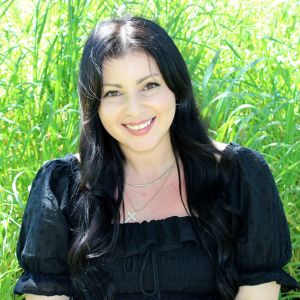
Ciera Perez
Therapist
AMFT
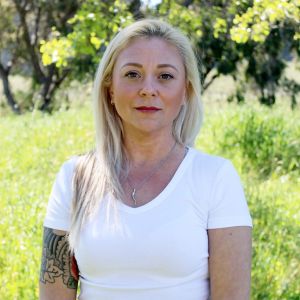
Sarah Dewitt
Case Management Specialist
RADT

Ashley Morgan
Case Management Specialist

Ciara Evans
Clinical Intake Specialist
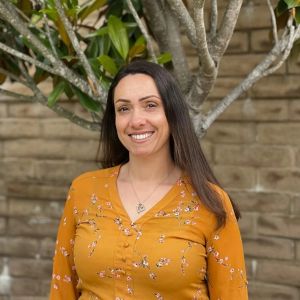
Tiffany Revilla
Alumni Coordinator & Milieu Manager
SUDRC




Levels of Care








Your Care Options
Specializations
1-on-1 Counseling
Patient and therapist meet 1-on-1 to work through difficult emotions and behavioral challenges in a personal, private setting.
Alcohol
Using alcohol as a coping mechanism, or drinking excessively throughout the week, signals an alcohol use disorder.
Detox
Detox fully and safely removes toxic substances from the body, allowing the next steps in treatment to begin with a clean slate.
Co-Occurring Disorders
A person with multiple mental health diagnoses, such as addiction and depression, has co-occurring disorders also called dual diagnosis.
Drug Addiction
Drug addiction is the excessive and repetitive use of substances, despite harmful consequences to a person's life, health, and relationships.
Trauma
Some traumatic events are so disturbing that they cause long-term mental health problems. Those ongoing issues can also be referred to as "trauma."
Twelve Step
Incorporating spirituality, community, and responsibility, 12-Step philosophies prioritize the guidance of a Higher Power and a continuation of 12-Step practices.
Who We Treat
LGBTQ+
Addiction and mental illnesses in the LGBTQ+ community must be treated with an affirming, safe, and relevant approach, which many centers provide.
Pregnant Women
Addiction and mental health treatment meets the clinical and psychological needs of pregnant women, ensuring they receive optimal care in all areas.
Veterans
Patients who completed active military duty receive specialized treatment focused on trauma, grief, loss, and finding a new work-life balance.
Approaches
Evidence-Based
A combination of scientifically rooted therapies and treatments make up evidence-based care, defined by their measured and proven results.
Holistic
A non-medicinal, wellness-focused approach that aims to align the mind, body, and spirit for deep and lasting healing.
Individual Treatment
Individual care meets the needs of each patient, using personalized treatment to provide them the most relevant care and greatest chance of success.
Twelve Step
Incorporating spirituality, community, and responsibility, 12-Step philosophies prioritize the guidance of a Higher Power and a continuation of 12-Step practices.
Gender-Specific
Separate treatment for men or women can create strong peer connections and remove barriers related to trauma, shame, and gender-specific nuances.
Therapies
1-on-1 Counseling
Patient and therapist meet 1-on-1 to work through difficult emotions and behavioral challenges in a personal, private setting.
Experiential Therapy
With this approach, patients heal by doing. Therapists help patients process difficult emotions to speak, using guided activities like art or dance.
Family Therapy
Family therapy addresses group dynamics within a family system, with a focus on improving communication and interrupting unhealthy relationship patterns.
Motivational Interviewing and Enhancement Therapy (MET)
This approach is based on idea that motivation to change comes from within. Providers use a conversational framework that may help you commit to recovery.
Twelve Step Facilitation
12-Step groups offer a framework for addiction recovery. Members commit to a higher power, recognize their issues, and support each other in the healing process.
Conditions We Treat
Anxiety
Anxiety is a common mental health condition that can include excessive worry, panic attacks, physical tension, and increased blood pressure.
Depression
Symptoms of depression may include fatigue, a sense of numbness, and loss of interest in activities. This condition can range from mild to severe.
Substances We Treat
Alcohol
Using alcohol as a coping mechanism, or drinking excessively throughout the week, signals an alcohol use disorder.
Benzodiazepines
Benzodiazepines are prescribed to treat anxiety and sleep issues. They are highly habit forming, and their abuse can cause mood changes and poor judgement.
Chronic Relapse
Consistent relapse occurs repeatedly, after partial recovery from addiction. This condition requires long-term treatment.
Co-Occurring Disorders
A person with multiple mental health diagnoses, such as addiction and depression, has co-occurring disorders also called dual diagnosis.
Cocaine
Cocaine is a stimulant with euphoric effects. Agitation, muscle ticks, psychosis, and heart issues are common symptoms of cocaine abuse.
Drug Addiction
Drug addiction is the excessive and repetitive use of substances, despite harmful consequences to a person's life, health, and relationships.
Ecstasy
Ecstasy is a stimulant that causes intense euphoria and heightened awareness. Abuse of this drug can trigger depression, insomnia, and memory problems.
Heroin
Heroin is a highly addictive and illegal opioid. It can cause insomnia, collapsed veins, heart issues, and additional mental health issues.
Psychedelics
Hallucinogenic drugs—like LSD—cause euphoria and increased sensory experiences. When abused, they can lead to depression and psychosis.
Languages
Aftercare
Care Designed for Your Needs
Personal Amenities
Amenities
Special Considerations
Gender-specific groups
Patients in gender-specific groups gain the opportunity to discuss challenges unique to their gender in a comfortable, safe setting conducive to healing.
Activities
Yoga
Yoga is both a physical and spiritual practice. It includes a flow of movement, breathing techniques, and meditation.

What people are saying
Treatment
3.6
Accommodations
3.7
Food & Nutrition
3.6
Value
3.7
Raymond Manamea
Reviewed 08/09/23
Review from Rehabs.com
AV
Reviewed 07/12/25
Review from Rehabs.com
Tony malone
Reviewed 12/29/24
Review from Rehabs.com
Brittany
Reviewed 04/19/24
Review from Rehabs.com
Anonymous
Reviewed 05/02/18
Review from Rehabs.com





